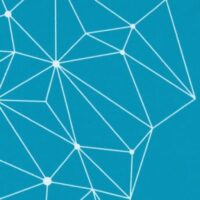Experience seems fractal to me, neither linear nor random, but rather a collage of infinite and endlessly unfolding anamorphic recursions. The few that are proximal stimulate/trigger corresponding neurological patterns in my body and brain to make up my experience.
So my vantage point, together with the subsumed outcomes of previous iterations, structure my “reality.” The future extends as recursive probability functions from there.
The universal drive of life towards survival reinforces neural networks that improve health, relationships, aesthetics, hygiene, etc. Thus, evolutionary adaptations have left us acutely tuned to our environments.
So when we are clear minded and active, we approach almost everything strategically. It’s like one of the fundamental principles of chess: how do I optimize the board for future moves? Or “what will make my body strong so that I can do the things I want to do?”


I am not sure how the universal drive for life necessarily reinforce neural networks that improve health, etc., unless one first assumes that there is a preceding ethical framework that assures that the decisions are directed to the improvement of the human condition. How do we understand individual behavior that is to improve the health, etc. of that individual, but at the cost of the community.
There’s got to be some unexplained fundamental process at work that drives the survival instinct in all of life. Our senses, central nervous systems, and prefrontal cortex all evolved in that context — each advance increasing survival rates. That “survival instinct” rewards effective habits, rituals, community… well-aligned ethics. Community thrives when participants collaborate and evolutionary drive is satisfied.
I still think that you make a leap when you state “. . . well-aligned ethics,” unless you first define the survival instinct as communal rather than individual. It seems that ethics is in the space between the individual survival instinct and the instinct for a thriving community. It doesn’t seem that you explicitly define how that connection is made. Perhaps, the basis can be found in The Selfish Gene by Richard Dawkins, Kin Selection by Francios Rousset, A Cooperative Species: Human Reciprocity and its Evolution by Samuel Bowles and Herbert Gintis, or even Sapiens by Yuval Noah Harari.
Perhaps, also look at the writings of Peter Singer. “Ethics in the Real World: 90 Essays on Things that Matter.” or “Practical Ethics